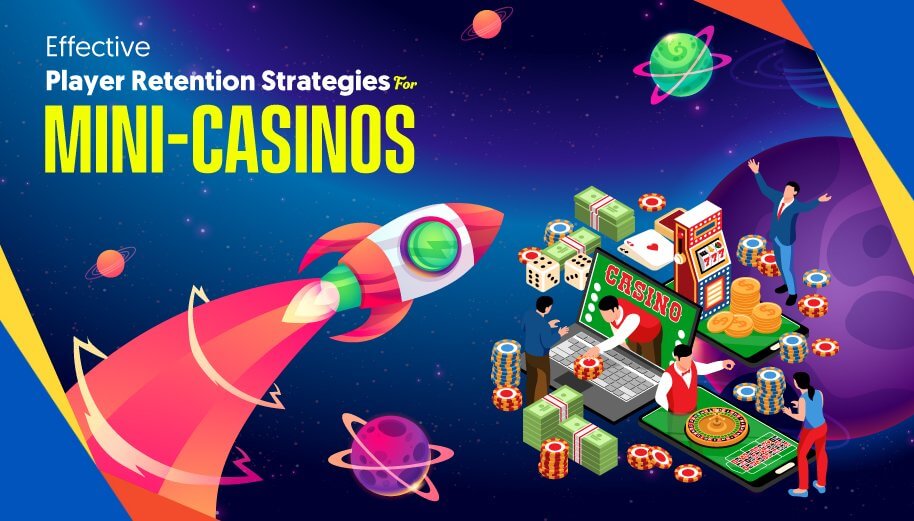
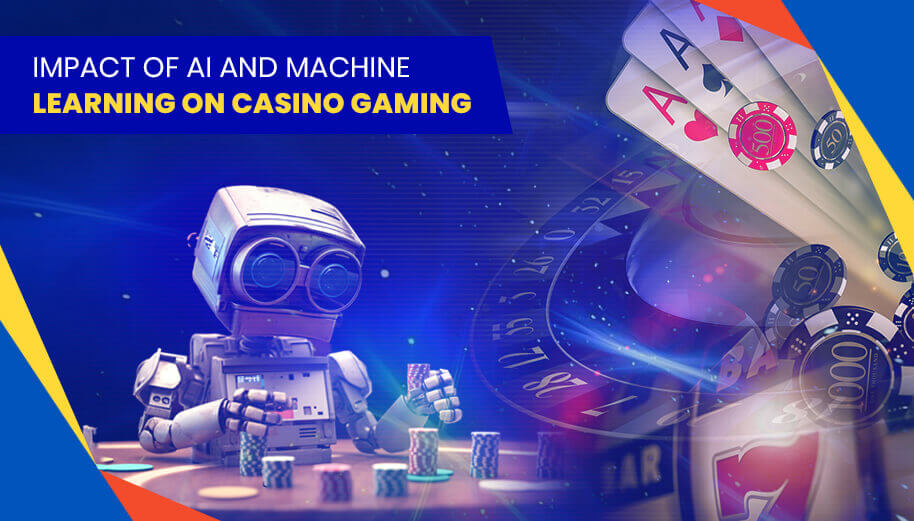
The online casino game development industry has been transforming in a drastic manner, creating new opportunities for both casino players and operators. Modern technologies like AI and ML are transforming online casino games in the most intuitive way, making casino platforms more customizable, convenient, and engaging for players.
These tech transformations are not only enhancing the online casino experience but also providing valuable and data-driven insights that can improve player engagement and overall casino operation. However, integrating AI and ML in casino games platforms with the help of casino game developers enables operators to stay ahead of the competition, reshaping the gameplay journeys of the players. In addition to this, casino gamification tools, rewards, personalized in-game tournaments, and levels enable casino operators to offer players interactive and intuitive online gaming experiences.
The gambling sector is undergoing an emerging evolution with the introduction of the latest and trending technologies, reshaping the landscape in multiple ways. AI algorithms are enhancing live dealer casino games, making them more realistic, dynamic, and personalized as per the preferences of the players. Many casino operators and casino game development companies are leveraging the power of AI technology to make the most of their investment while offering players an enhanced, unique, and engaging experience to players.
In this blog, we will be discussing the applications, strategies, future trends of Machine learning and AI in online casino games.
The Role of AI and ML in Online Casino Games
AI and ML have impacted the online casino gaming industry, operators as well as online casino game providers in the most engaging and immersive manner, making platforms more personalized, engaging, and interactive for players. AI revolutionizes online casino games by integrating gamification strategies by making games available to individual players who love to bet and complete difficult missions, levels, and challenges. Artificial intelligence navigates and customizes the gaming experience in real-time and offers players appealing animations, and leaderboards.
With the integration of machine learning algorithms and AI in casino games, it becomes easier for casino operators to analyze the style, patterns, game offerings, and promotions in real time to match your taste. In such a way, you can customize the experience of your players in the most professional manner by providing them with tailor-made casino games, promotions, bonus offers, etc. It involves the usage of statistical data and insights, enabling operators to understand the behavior of the players and cater to responsive gaming environments.
Applications of AI and Machine Learning in Online Casino Game Development
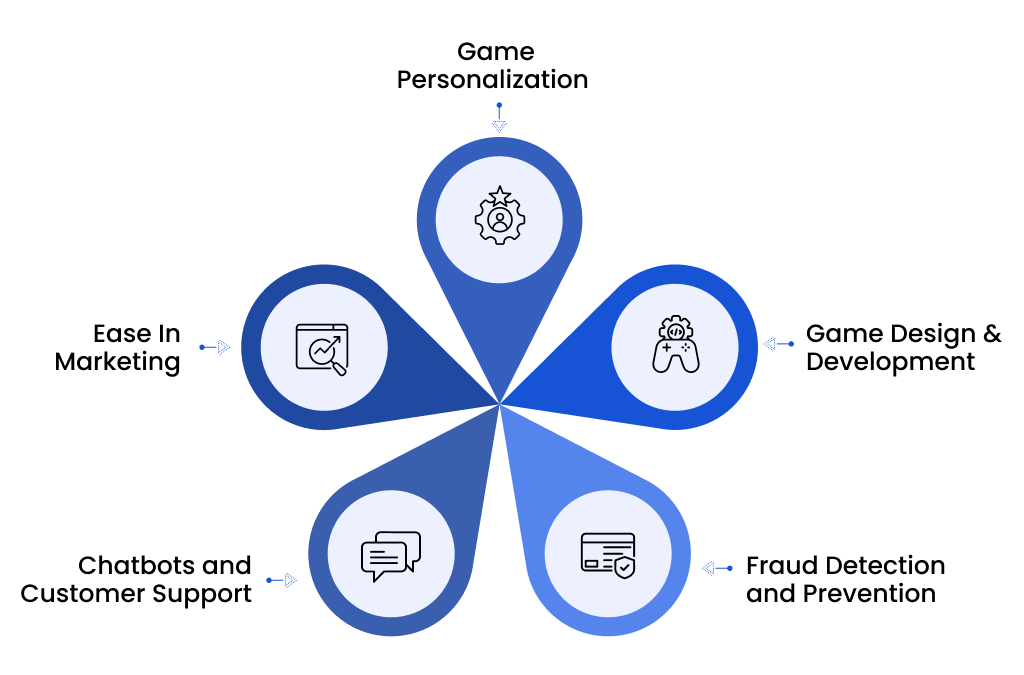

Game Personalization
With AI and ML-driven tools, you can track the pattern, behavior, and preferences of the players by knowing their interests, likes, and hours of playing. With data-driven insights and algorithms, it is possible to understand their preferences such as the type of casino games they like, how long they spend their time on the platform, and the type of in-game levels and elements they like, making it easier for casino game developersto customize their gameplay journey, and amplify their satisfaction.
The level of customization not only benefits players but also business owners by catering to varied tastes and preferences, keeping them engaged and entertained for prolonged hours.

Game Design and Development
AI in casino games can simplify the process of game design and development, making it seamless and flawless for operators to automate certain tasks such as level creation, storyline generation, and analyzing the character behavior of the players. AI-driven algorithms analyze the pattern of the players and automate the procedure of making the in-game levels or missions in the most efficient manner possible. This ensures players get a tailor-made and reliable casino experience anytime and anywhere they want.

Fraud Detection and Prevention
One of the most critical applications of AI and ML in online casino games is to detect fraud and prevent it to avoid data breaches. The online casino industry is mostly attacked by fraudsters who make invalid payments and make wrong use of the players' financial and personal data. In order to prevent such situations, more and more online casino game providers have adopted ML-driven tools that allow casino operators to track and detect unusual gambling patterns and take instant actions to maintain credibility and compliance with regulatory requirements.

Chatbots and Customer Support
AI-driven chatbots are becoming very popular when it comes to online casino platforms, providing both operators and casino players with a sense of convenience and flexibility in terms of an online customer support system. Unlike traditional customer support systems, AI-driven chatbots developed by online casino developers allow customers to handle overall issues and queries in the most instant and professional manner.

Ease In Marketing
Both AI and ML allow operators to analyze the player data and track their preferences, spending, patterns, and behavior. This information is extremely vital for business owners to customize marketing strategies, campaigns, and promotions accordingly and offer reliable offers and engagement strategies to keep players retained and attracted to the platform. This not only enables operators to build a loyal community of existing customers but also tap the untapped potential of the market in the most cost-effective way.
Want To Know How You Can
Implement AI/ML Models?
Strategies to Integrate AI and Machine Learning in Casino Games
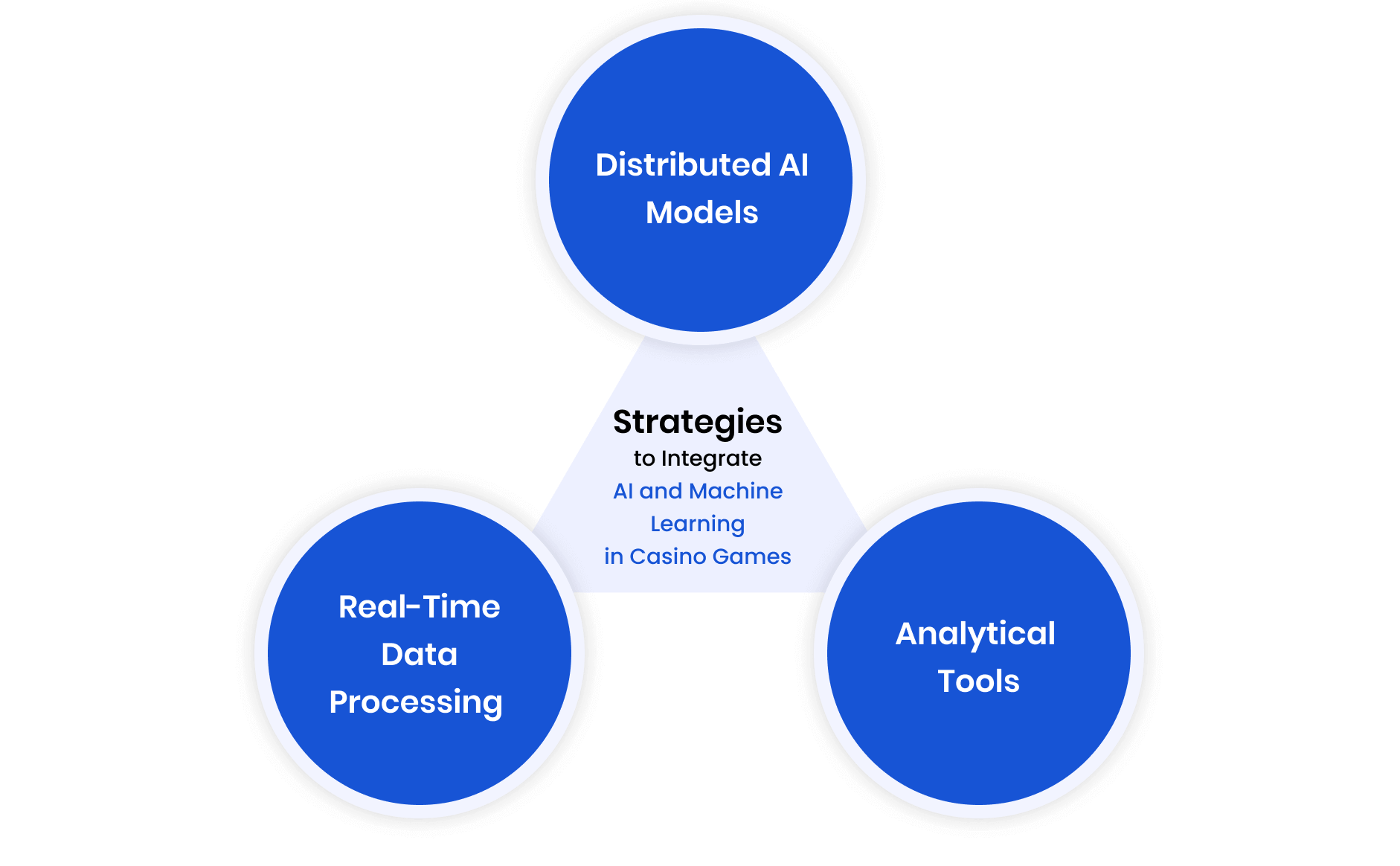

Distributed AI Models
Distributed AI models like cloud-based platforms enable operators to automate the various operational functions and ensure the system remains efficient, quick, and responsive during peak times. They ensure a high level of performance, scalability, and reliability for casino business owners.

Real-Time Data Processing
The ability to process data in real-time becomes very important for online casino game providers to streamline different functions of the business. With AI and ML-driven tools and algorithms, gathering, analyzing, and tracking player data becomes seamless and manageable. This ensures them to make quick business decisions, increasing overall scalability and profitability.

Analytical Tools
AI and ML are not just restricted to gathering data and enhancing gameplay but also they are extremely important for business owners to enhance the game design and operations.
AI-driven analytics enable businesses to track patterns, trends, and preferences and make actionable decisions on casino game design and development. Moreover, analytical tools enable operators to personalize their marketing and promotional strategies to attract and keep customers engaged and retained on the platform.
Overcoming Challenges in Integrating ML and AI in Casino Games
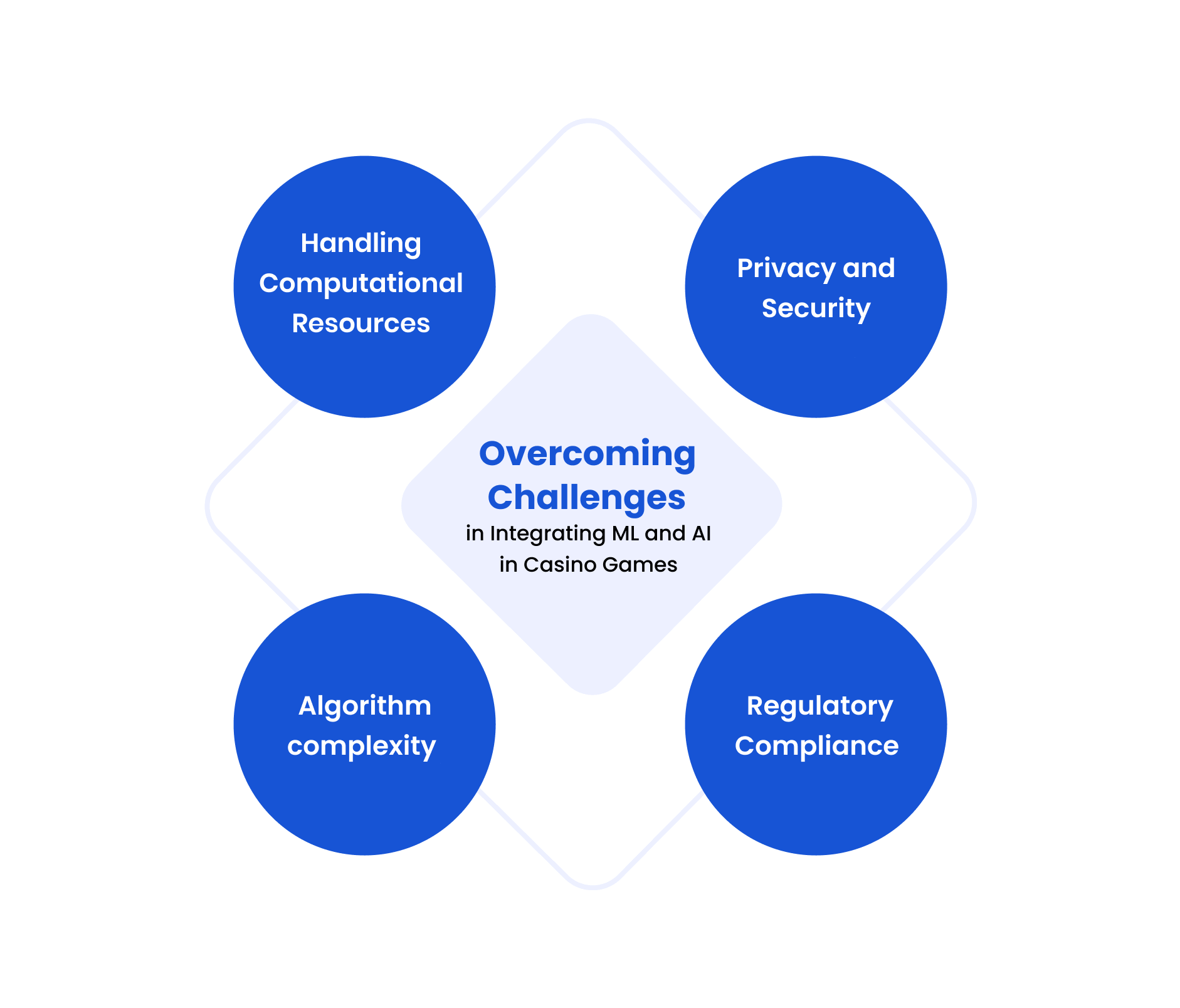
Handling Computational Resources
Both AI and ML require computational resources to gather, process, and analyze significant player data, preferences, and insights. Casino game developers make the best use of cloud services, GPUs, and other resources to enable operators to track the data efficiently and cost-effectively without any technical hindrances.
Privacy and Security
Privacy and security are one of the major challenges that casino operators face when integrating AI and machine learning in casino games. Casino game developers should integrate a high level of compliance, and encryption tools and measures to ensure the safety and security of the players. AI and ML systems should be highly compatible with the security of the player data, and insights in order to provide customers with credible gambling experiences.
Algorithm complexity
AI/ML models can be very difficult and complex to develop and design, requiring extensive knowledge of data science, software engineering, and machine learning algorithms. This requires a lot of technical expertise and know-how to avoid any kind of confusion. In order to mitigate this challenge, developers must integrate the pre-established AI and ML frameworks, simplifying the process by making it smooth, seamless, and cost-effective.
Regulatory Compliance
The integration of artificial intelligence and machine learning tools should comply with regulatory requirements and strict gambling laws to avoid any kind of security breach or unauthorized access to gambling operations. Online casino game development service providers must ensure that AI/ML models cater to responsible gaming measures and fraud detection policies to cater to player satisfaction and security.
Future Trends of AI and ML in the Casino Gaming Industry
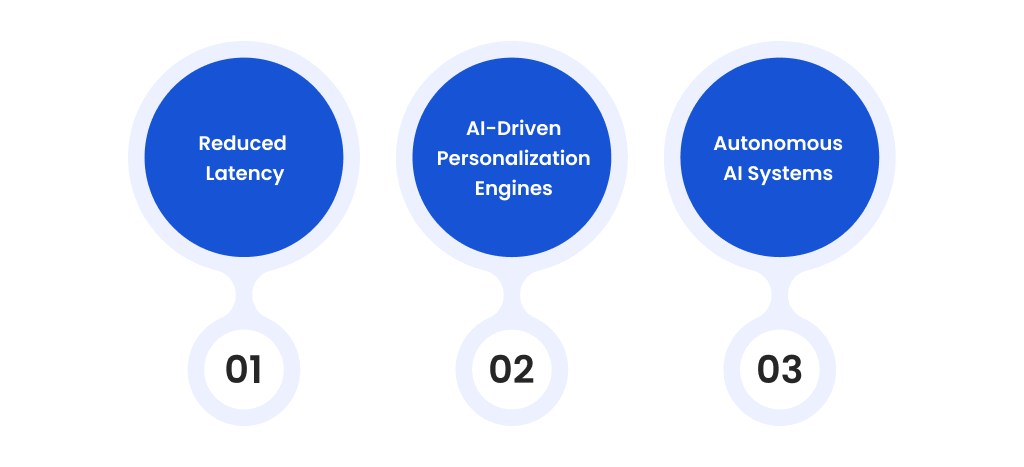

Reduced Latency
As the AI and ML models evolve, casino gaming becomes more responsive, quick, and reliable for operators. The AI-driven casino platforms also promise mobile-friendly and real-time gaming, providing casino operators aid to quick decision gaming.

AI-Driven Personalization Engines
AI-driven personalization engines will enable casino operators to deliver the most personalized, individualized, and immersive gaming experiences that are not only adaptable to player behavior but also cater to their preferences, interests, and likes. This increases the room for a high level of player engagement, interaction, and satisfaction.

Autonomous AI Systems
As AI in casino games continues to evolve, autonomous systems will allow operators to reduce human intervention and streamline operations by automating the features and functions. These systems enable operators to customize their process of collecting, analyzing, or tracking the data and convert them into the most preferable or lucrative actionable insights. This not only paves the way for success but also increases the scope of player engagement and retention in the most cost-effective and seamless way possible.
Explore Interesting Blogs from Different Categories
How GammaStack Can Help You Implement AI and ML in Online Casino Games
With 13+ years of experience as an online casino game development company, GammaStack offers a comprehensive range of casino games that offer exceptional features, immersive gameplays, and designs. Our expert team of online casino game developers integrates AI and ML tools and models to deliver the most responsive, credible, and compliant casino solutions that are highly reliable for players. As AI/ML transforms the online casino gaming landscape, we promise to deliver the latest casino games, enabling you to stay ahead of the ever-evolving gaming industry most cost-effectively and efficiently.
- On-demand customizations
- 24/7 customer support
- Robust AI/ML tools
- User-friendly UI/UX design
- Third-party integrations
Frequently Asked Questions
AI and ML models in online casino games can offer multiple benefits to casino operators such as personalized experience, automation of processes, compliance with regulations, security, and safety of the players.
The key role of AI in casino games operations offer increased personalization, operational efficiency, revenue forecasting, marketing efficiency, fraud detection, and slot recommendations.
Yes, at Gammastack, we offer AI and ML-driven online casino gaming platforms that are highly scalable and reliable for business owners.
Casinos like live dealer casinos, virtual reality casinos, and mobile casinos leverage the power of AI and ML to provide players with a highly secure and customizable gameplay experience.
Key applications of AI and ML technologies include game personalization, enhanced game mechanics, fraud detection, prevention, game design & development, chatbot support, and player behavior analysis and marketing.
The key challenges to integrating AI and ML models are regulatory compliance, player trust and acceptance, data privacy, and technical expertise.

